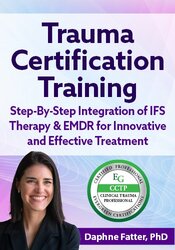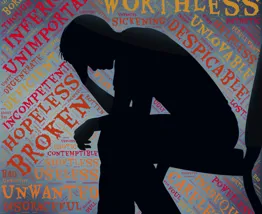Enrol in an online course today for flexible, self-paced learning—no fixed schedule required. Plus, enjoy lifetime access to course materials for convenient revisiting.
Compassion Focused Therapy: Turning up For Yourself

How do you try to treat your best friend, or a loved one? If they’re struggling, what do you try to do for them? Normally these questions are relatively easy for my clients to answer. Interestingly, when I ask them whether they tend to treat themselves with the same type of care, concern and support, they commonly shake their head.
Although we rarely reflect on the type of relationship we have with ourselves, research studies have shown that there are stark differences – whether that be on your immune system, neurobiology, self-worth, mental health distress – between those who treat themselves with lots of hostility, self-criticism and hatred, versus those who treat themselves with support, understanding and encouragement. The latter – often known as self-compassion – is emerging as a key area of focus in a number of therapies but in particular, as part of Compassion Focused Therapy (CFT).
Compassion is often defined as ‘a sensitivity to the suffering of self and others, with a commitment to alleviate and prevent it returning’. A pithy version of this is: the desire to be helpful, not harmful. There has been an explosion in research showing the benefits from cultivating and having higher levels of self-compassion. CFT was developed by Professor Paul Gilbert, initially to help clients with high levels of shame and self-criticism. It’s now an approach that is rapidly gathering encouraging outcome data for a wide range of psychological difficulties, including trauma, eating disorders and psychosis.
One of the key aspects of CFT is a recognition that, whilst cultivating greater self-compassion is important and often beneficial, many clients find they are blocked to doing this. A lot of the work in CFT is helping people to understand, tolerate and reduce fears, blocks and resistances to compassion. In terms of self-compassion, these commonly include a concern that it will:
- Make me weak and vulnerable
- Make me indulgent and lazy
- Involve me letting myself off the hook
- Mean me giving up self-criticism
Interestingly, self-compassion involves none of these things. Underpinning self-compassion – and compassion more broadly – is not only a caring motivation, but also strength and courage. Noticing and moving towards your own suffering – as in trauma, with shame memories or in agoraphobia – is not easy, weak or indulgent. It takes guts to engage in our own pain, just as it sometimes takes courage to engage in compassion to others (e.g. the firefighter running in to a burning building to save someone).
Just as there are many routes in to the centre of London, so there are many routes in to helping clients develop a more compassionate relationship with themselves. But just like
learning a new language, musical instrument or sport, key to this is motivation and practice. A good place to start with clients can be the following short exercise:
Ask them to bring to mind someone in their life – an adult – who they care for; someone that they have a sense of warmth, kindness or even love towards. Invite your client to imagine speaking to that person, using a voice tone that shows their warmth and care towards them. Ask them to really try to ‘hear’ that tone of voice in their mind. Now, holding on to that voice tone, can they hold themselves in mind instead, and ask themselves the following question: “What small thing could I do today that would involve me treating myself like I would someone I care for?
Dr Chris Irons is currently developing an interactive CFT app. For more information visit https://www.apps.psyt.co.uk


















